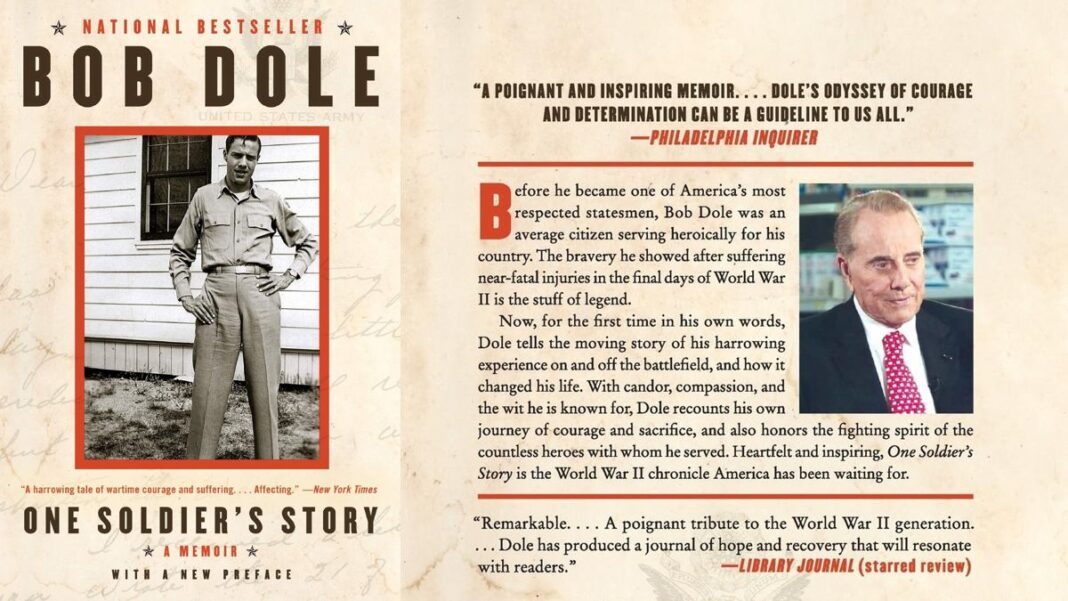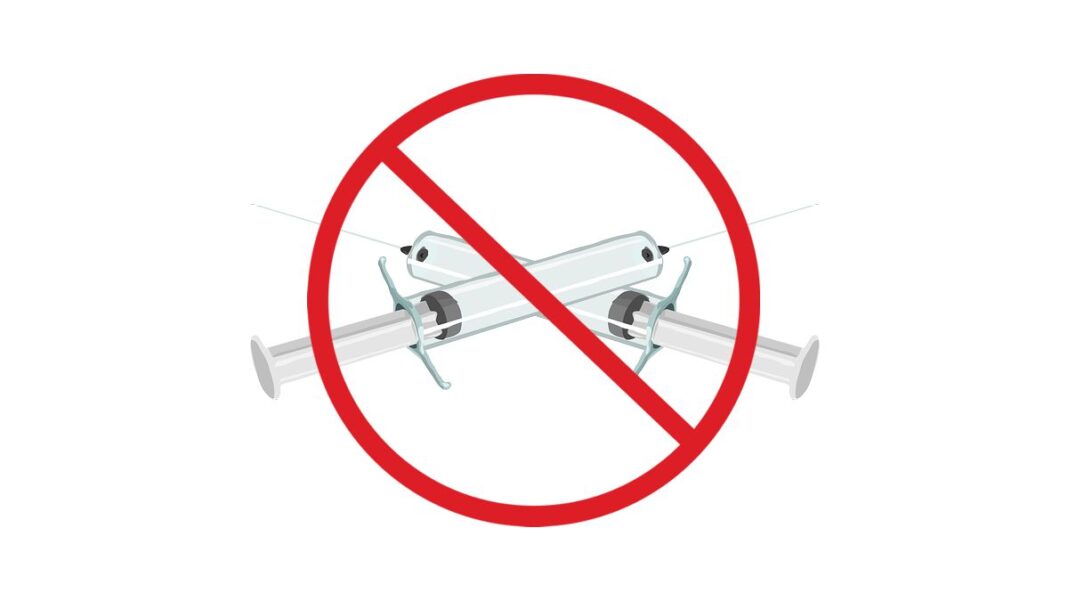“When I’m not in my foxhole ducking German artillery, I’m generally on night patrol or trying to catch some sleep. I’m pretty dirty right now. I haven’t showered or washed for several days, but I guess it won’t hurt me any. I can’t see why the Jerrys [Germans] won’t give up, but I’m just a second lieutenant who doesn’t know too much about the big picture.”
Before becoming a respected senator, the late Bob Dole was just another G.I. serving in World War II, writing letters home to his folks. In his memoir, One Soldier’s Story, he conveys that his story is just one of millions of such tales. The only thing heroic about his story, he says, was his recovery from horrific war wounds—and only then, because of the help he received from the special people in his life.
Dole begins his book by telling of emerging fresh from Officer Candidate School to be assigned as second lieutenant of a platoon in the 85th Regiment. Eventually, his unit would move from the mud of the foxholes out into battle in order to secure a position on a place called “Hill 913.” During the ensuing fray, Dole, attempting to rescue his downed radioman, was hit by German fire. The young soldier’s injuries led to his losing the use of his right arm, as well as much feeling in his left. (Dole later had to learn to walk again, and to use his left hand to perform the functions of two hands.) Bob Dole says that while in a semiconscious state after getting hit, his mind wandered to memories of his childhood in Russell, Kansas.
At this point, the book rewinds to talk of the Great Depression, Dole’s love of sports, and his job as a soda jerk. Next came college, and then the war. After enlistment and Officer Candidate School, he was shipped out to Italy.
Subsequently, Dole tells of his journey of recovering from his war wounds. It was painful, and even worse, very slow. He was totally dependent on doctors and nurses. “It was much the same routine every day,” he notes. “They’d slide me out of bed, stand me up like a scarecrow dressed in a plaster cast, and I’d stand there, trying to will my feet to move; I’d stand for as long as I could until the tremors forced me down again.” Later he adds, “Some days I spent hours trying to close two fingers on my right hand. It was extremely frustrating.”
Dole speaks openly of his disability. Actually, his cheerful attitude minimizes its noticeability: “Two qualities that I’ve learned through my war experience and the subsequent disabilities that I’ve lived with for the past sixty years are patience and adaptability.” In his book he says that “maintaining a healthy sense of humor is key to overcoming any setback in life, even when your setbacks are extremely public.”
The author does not attempt to impress his opinions or force his politics upon his readers. Instead, the most he does is to explain, gently and respectfully, what his role in the Senate has meant to him. Bob Dole is sincere, humble, and humorous in his narrative. One Soldier’s Story is very readable, and if anything can be said against it, it is that it is too short. Appropriate for the whole family, this book will be enjoyed by anyone interested in World War II, inspirational stories, history, or even just in reading. It is not only encouraging, but written in a personable way which will grow your respect for this great American.
“One Soldier’s Story is the World War II chronicle America has been waiting for,” announces the book’s synopsis. And this statement is quite correct; it will not disappoint.
Bibliography
Dole, Bob. One Soldier’s Story. HarperCollins Publishers, 2005.








